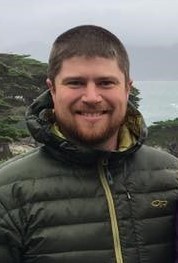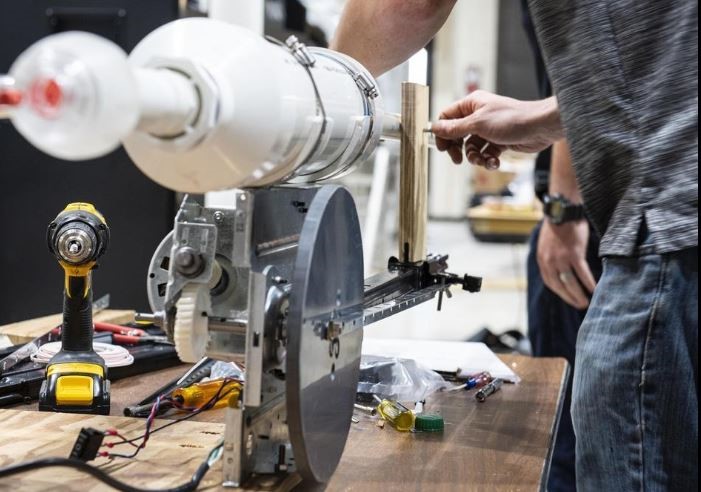CHIPOLA ALUMNUS HELPS CREATE LOW COST VENTILATOR


Chipola College
Office of Public Relations
For Immediate Release
April 16, 2020
NAVAL SUPPORT ACTIVITY PANAMA CITY — Jesse Waymire, a graduate of Chipola College, was part of a team of engineers and experts which developed a new prototype ventilator to help COVID-19 patients.
The team at the Naval Surface Warfare Center Panama City created the Pre-Vent which costs $254, weighs 35 pounds, uses things available at any local hardware or auto parts store and can be assembled by anyone using only household tools.
Waymire is the Lead Engineer of the Hydrospace Laboratory at the NSWC. He graduated from Chipola in 2005 and transferred to the University of Florida to earn a degree in Mechanical Engineering. Waymire said, “My time at Chipola College was great. The college awarded me a scholarship for being a Valedictorian at Chipley High School. Because Chipola was close to home with a great math department, it made for an easy decision to pursue my Associate in Arts degree there. My math professors—Bonnie Smith and Dr. Lou Cleveland—and Physics Professor, Dr. Jeff Bodart, all had very enjoyable classes.
Waymire said, “Working on the team that has developed the Pre-Vent has been very rewarding knowing that the ventilator or even parts of it may go on to be used in saving lives. Normally I test diving and life support equipment that people use, so this project was well suited to our team. We were one of just a few teams selected to go to FDA testing. Depending on how testing goes, we could see our ventilator or parts of it integrated into ventilators of the other teams. The point of the exercise is to provide ultra-low cost ventilators that would support life using commonly available materials in a shortened timeline. I feel that it is important to do the best job you can, but also to set your ego aside to make the best product possible.”
NSWC PC Mechanical Engineer Andrew Schicho said, “The Pre-Vent runs on 120 VAC, has on-board battery backup, is portable enough to be carried by one person — and can be built in about a day. It isn’t pretty, but it will get the job done for now.”
The project was a race against time. The Department of Defense gave teams at different universities and agencies two weeks to develop the prototype. While four out of five teams at NSWC PC developed concepts and designs, only Schicho’s team built and tested its prototype — which performed above DoD requirements. Schicho’s team included: Alain Aznaran, Dustin Bride, Greg Holbrook, Greg Murphy, Chris Musto, Bill Ramey, Jason Scott, Chuck Self, and Jesse Waymire. The team used the NSWC Hydrospace Lab for its base operations and the Navy Experimental Dive Unit for medical expertise.
If the team wins the challenge, which included hundreds of submission across the country, the prototype could become a patented product and deployed quickly for use against COVID-19 at home and abroad — by purchase or do-it-yourself.

